The 10 Worst States To Do Business In
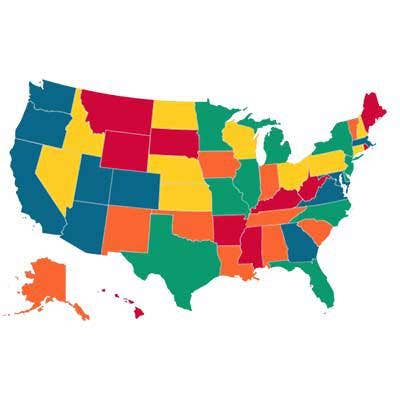
Anywhere But Here?
Not all U.S. states are created equal, at least not when it comes to how business-friendly they are.
Entrepreneurs seeking to start a solution provider business might be wondering which states to avoid calling "home." When it comes to taxes, regulations, access to an educated workforce and other factors important to solution provider owners, some states are near inhospitable.
In a groundbreaking new research project, The Best States To Start A Solution Provider Business, CRN Research gathered data on all 50 U.S. states across a variety of parameters.
We milled it all together, measured the states against each other and ranked them according to how solution provider business-friendly they are.
Here's a look at the 10 that came out as the worst states for solution providers to do business in.
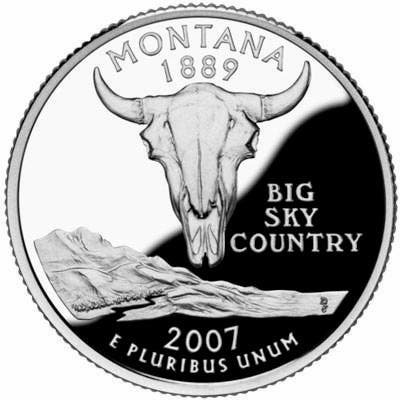
10. Montana
Solution Provider 500 Companies: 0
Montana is ranked No. 47 in business opportunity, due to it having some of the lowest scores among all states for such areas as economic diversity, high-wage traded services (the share of a state's employment in traded services sectors in which the average wage is above the national median) and deployment of residential broadband communications. But with just more than 1 million residents spread across 147,046 square miles, that should come as no surprise.
Montana's rankings for the experience and education of its workforce (No. 36) and innovation and growth prospects (No. 35) aren't especially attractive. And its No. 27 rank for overall taxes and regulatory environment are middling. The No. 14 ranking for labor/business costs is a plus.
Montana has no solution providers on the Tech Elite 250, Next-Gen 250, and Fast Growth 100 and 50 Up-And-Comers list.
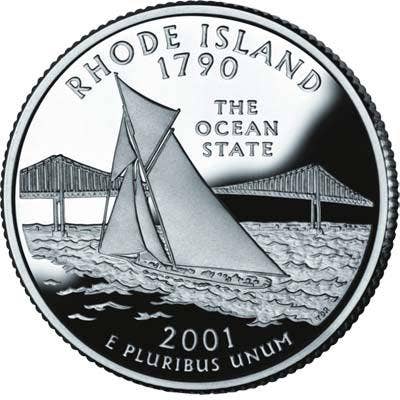
9. Rhode Island
Solution Provider 500 Companies: 4
High labor/business costs (No. 48) and unfavorable taxes and regulations (No. 48) took their toll on Rhode Island's overall ranking. In our analysis, the state had the worst score among all states in regulatory environment criteria and in the cost of unemployment insurance taxes. And, the state's high cost of living and sales taxes bring down its quality of life/personal cost of living ranking to an undesirable No. 44.
While Rhode Island's ranking for innovation and growth (No. 41) is also poor, its No. 17 rank in business opportunity (helped by a high score for economic diversity) is a factor in the state's favor. The state also scores fairly high for its educated, experienced workforce (No. 15).
Rhode Island has one solution provider each on the Tech Elite 250, Next-Gen 250, and Fast Growth 100 and 50 Up-And-Comers lists.

8. Kentucky
Solution Provider 500 Companies: 4
Kentucky's overall ranking was dragged down by its poor ranking (No. 48) for availability of an educated, experienced workforce. It was among the states with the lowest percentage of the population with college degrees.
The state was ranked No. 12 in the taxes and regulations category, including having some of the lowest property taxes among all states. But, its No. 29 rank in labor/business costs isn't terribly impressive, even less so are its overall rankings for innovation and growth (No. 42) and business opportunity (No. 39).
Kentucky has two solution providers on the Tech Elite 250 list, three on the Next-Gen 250 and three on the Fast Growth 100 and 50 Up-And-Comers lists.
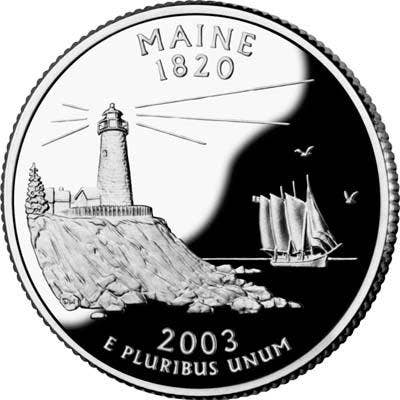
7. Maine
Solution Provider 500 Companies: 1
Maine scores poorly in the overall rank for taxes and regulation (No. 46), with its regulatory environment (No. 46) and property tax rank (No. 40). The track record for innovation and growth isn't much better (No. 43), while the rankings for cost of living (No. 39) and individual income tax (No. 43) aren't great either.
The state does score respectably for its business opportunities (No. 28), boosted by its high score for economic expansion and development, as well as access to capital. And the state is No. 23 in offering an educated, experienced workforce. But, the state's labor/business costs associated with that workforce rank No. 35.
Maine has one solution provider each on the Tech Elite 250 and Next-Gen 250 list, but no companies on the Fast Growth 100 and 50 Up-And-Comers lists.
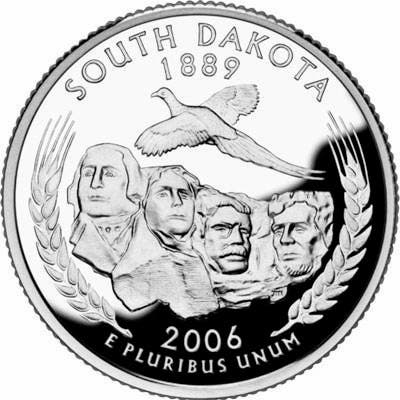
6. South Dakota
Solution Provider 500 Companies: 0
South Dakota is best known for the majestic Mount Rushmore, but as a place for innovation and growth, not so much. The state is ranked No. 50 for innovation and growth prospects. That's due to the low percentage of scientists and engineers in the state's private sector, available high-tech jobs and entrepreneurial activity. But, surprisingly, the state ranks No. 24 in inventor patents.
South Dakota also scores relatively low in business opportunity (No. 46), the education and experience of its workforce (No. 38), and taxes and regulations (No. 37). That last score undoubtedly takes a hit from the 4 percent tax on computer services levied by the state. It does well in overall labor and business costs (No. 9). But, it really shines in quality of life/cost of living category (No. 6).
There are no solution providers from South Dakota on the Next-Gen 250, Tech Elite 250, or Fast Growth 100 and 50 Up-And-Comers lists.

5. Mississippi
Solution Provider 500 Companies: 4
Mississippi, like other Southern states, has relatively low taxes and employment costs, along with low rankings for innovation prospects and business opportunities. The state ranks No. 7 for overall labor and business costs and No. 11 for overall taxes and regulation. But, the low education and workforce experience levels rank it only No. 47: The state was among the lowest in the number of IT jobs (as a share of private-sector employment), and only 19.8 percent of adults have a bachelor's degree or higher -- second only to West Virginia.
Despite scoring fairly well in entrepreneurial activity, Mississippi ranks No. 46 in innovation and growth prospects: It's last among all 50 states for inventor patents. And, it's No. 42 in overall business opportunities.
There are two Mississippi-based solution providers on the Tech Elite 250, two on the Fast Growth 100 and 50 Up-And-Comers lists, and one on the Next-Gen 250 list.

4. Arkansas
Solution Provider 500 Companies: 0
Arkansas suffers from its low ranking (No. 45) for the education and experience of its available workforce, as well as for its low ranking (No. 47) for innovation and growth potential.
Labor and business costs are low (ranked No. 6). And, the state is in the middle of the pack for overall taxes and its regulatory environment (No. 19) and business opportunities (No. 29).
While the cost of living is low (No. 4), the state is dead last (No. 50) in the overall quality of life/cost of living category, due to such metrics as the percentage of its population with Internet access (No. 50), low median household income (No. 48) and high crime rates (No. 48).
Arkansas has one solution provider on the Next-Gen 250 list, but none on the Tech Elite 250 or Fast Growth 100 and 50 Up-And-Comers lists.
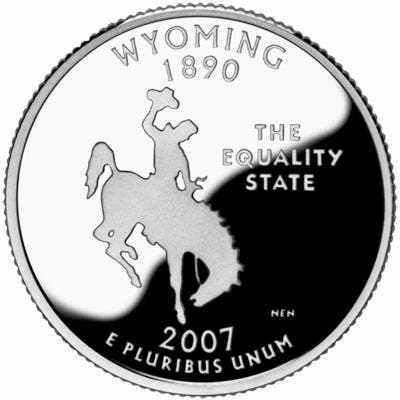
3. Wyoming
Solution Provider 500 Companies: 1
With fewer than 600,000 residents, Wyoming is the most sparsely populated state in the U.S. So, it's no surprise the state is ranked No. 50 in our analysis for business opportunities and No. 48 for growth and innovation potential. The small number of residents also figures into its No. 40 rank in the availability of experienced, educated workers. When you can find people, labor/business costs are low (ranked No. 10), and Wyoming is one of a few states with no corporate income tax. The overall ranking for personal lifestyle/cost of living is excellent (No. 3), thanks in part to the fact Wyoming is one of three states that has no individual income tax. But, tough regulations and high property taxes drop its overall taxes and regulations ranking to No. 30.
One solution provider from the Tech Elite 250 list is based in Wyoming, but there are no Wyoming solution providers on either the Next-Gen 250 list or Fast Growth 100 and 50 Up-And-Comers lists.

2. Hawaii
Solution Provider 500 Companies: 0
As a place to start a solution provider business, Hawaii isn't paradise, not with its high labor/business costs, which ranked No. 46. It also has the highest energy costs, and its high cost of living ranks it No. 44 in that criteria.
Hawaii is in the middle of the pack in the areas of workforce experience and education (No. 25). It's No. 43 in the tax and regulatory burden on businesses: While it has a low corporate income tax, it's one of only four states that charge a tax on computer services (4 percent in Hawaii). And it's ranked a poor No. 48 for its regulatory environment. While it may be a great place to learn to surf, the state's climate for innovation and growth was only No. 45 among the states, and its overall ranking for providing business opportunities was ranked a meager No. 49.
Hawaii has no solution providers on the Tech Elite 250, Next-Gen 250 or Fast Growth 100 and 50 Up-And-Comers lists.
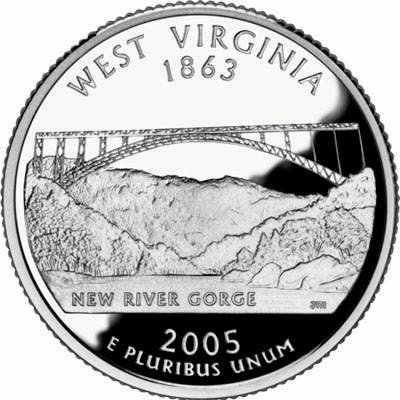
1. West Virginia
Solution Provider 500 Companies: 0
West Virginia has some things going for it, including relatively low labor and business costs (ranked No. 23), comparatively low taxes and limited regulations (No. 25), and moderate energy costs (No. 18). But, it is dead last (No. 50) in our analysis when it comes to the overall education level and experience of its available workforce. Only 18.5 percent of its adult population holds a bachelor's degree or higher -- lowest among all states. West Virginia was ranked No. 49 for innovation and growth (including a No. 50 rank in entrepreneurial activity) and No. 48 in business opportunities. The state offers a relatively low cost of living (No. 14). But, low scores for other factors, including No. 49 in median household income and No. 46 in the number of people that use the Internet, bring down its overall quality of life/cost of living rank (No. 43).
West Virginia has no solution providers on the Tech Elite 250, Next-Gen 250 or Fast Growth 100 and 50 Up-And-Comers.